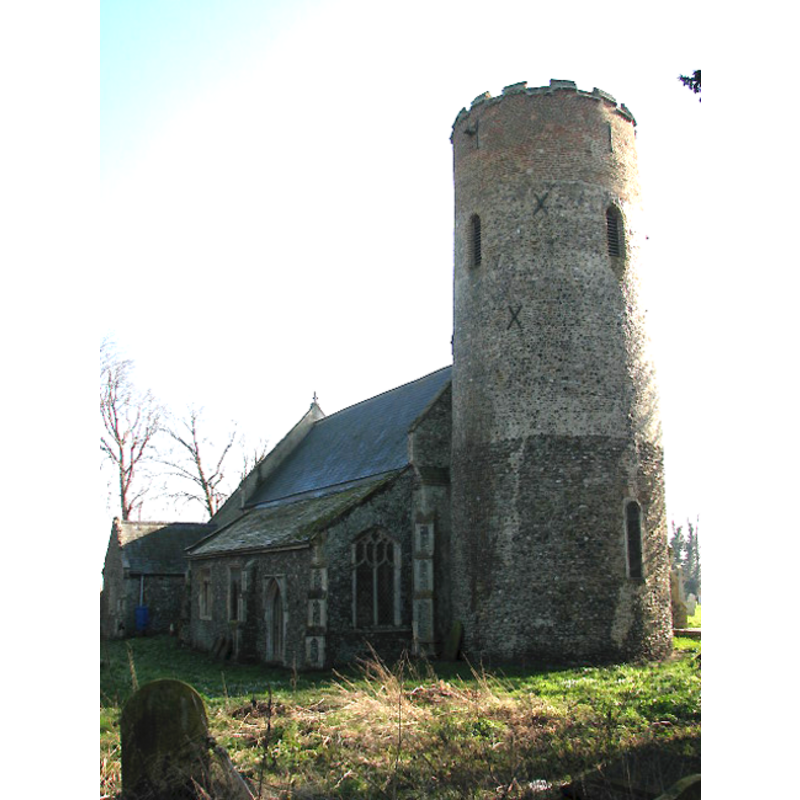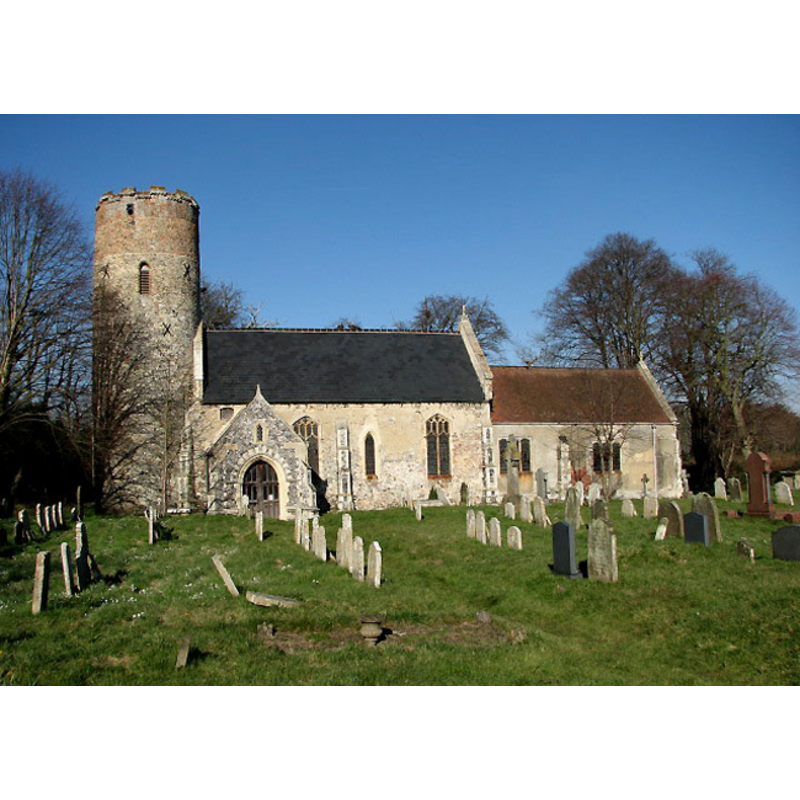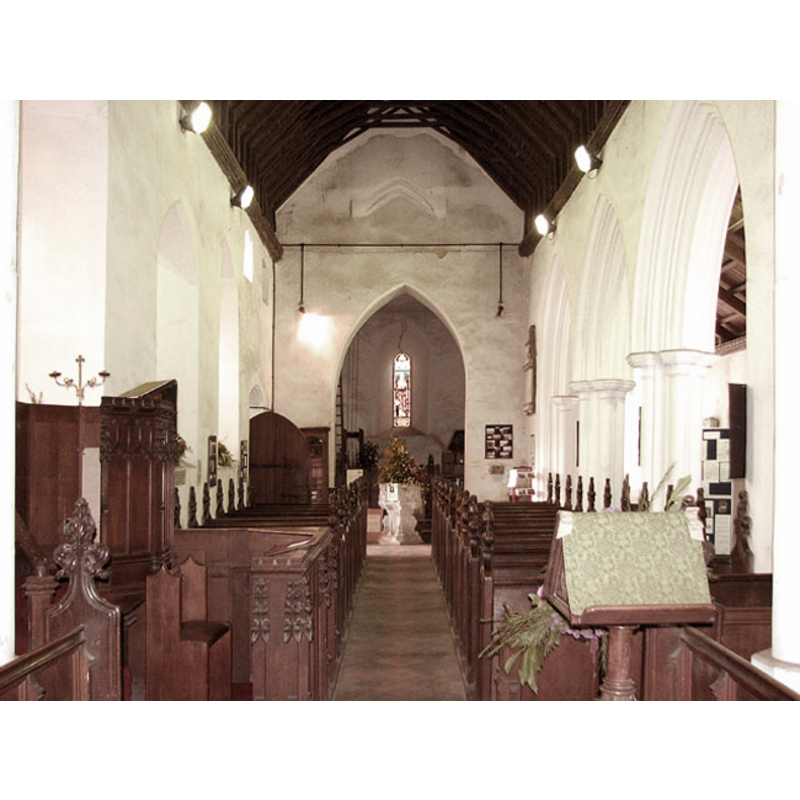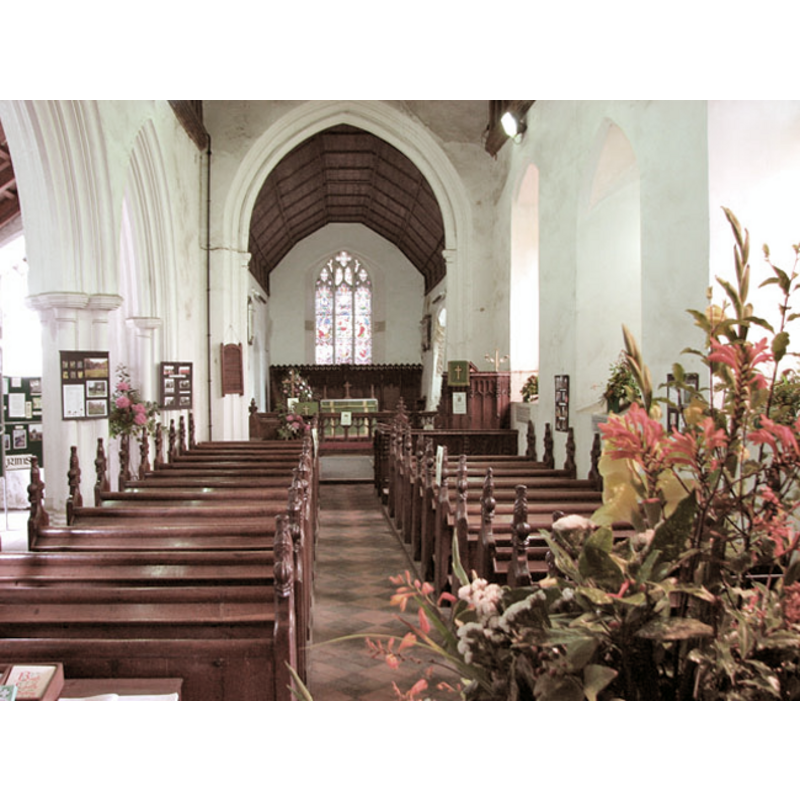Burgh Castle / Cnobersburg / Cnobheresburg
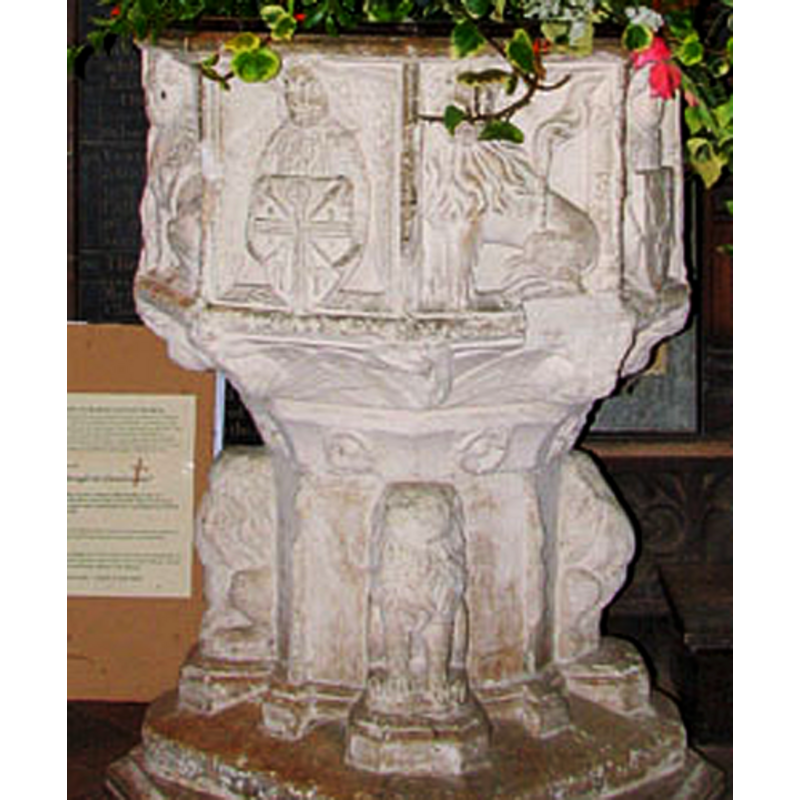
Image copyright © Evelyn Simak, 2010
CC-BY-SA-3.0
Results: 13 records
B01: angel - demi-figure - holding shield - emblem - the instruments of the Passion
Scene Description: [cf. Font notes]
Copyright Statement: Image copyright © Evelyn Simak, 2010
Image Source: detail of a digital photograph taken 1 August 2010 by Evelyn Simak [www.geograph.org.uk/photo/1990808] [accessed 6 March 2012]
Copyright Instructions: CC-BY-SA-3.0
B02: angel - demi-figure - holding shield - emblem - Trinity
Scene Description: [cf. Font notes]
Copyright Statement: Image copyright © Evelyn Simak, 2010
Image Source: detail of a digital photograph taken 1 August 2010 by Evelyn Simak [www.geograph.org.uk/photo/1990808] [accessed 6 March 2012]
Copyright Instructions: CC-BY-SA-3.0
B05: animal - mammal - lion - sejant-gardant - 4
Copyright Statement: Image copyright © Evelyn Simak, 2010
Image Source: detail of a digital photograph taken 1 August 2010 by Evelyn Simak [www.geograph.org.uk/photo/1990808] [accessed 6 March 2012]
Copyright Instructions: CC-BY-SA-3.0
BU01: angel - cherub - 8
Scene Description: some damaged [cf. FontNotes]
Copyright Statement: Image copyright © Evelyn Simak, 2010
Image Source: detail of a digital photograph taken 1 August 2010 by Evelyn Simak [www.geograph.org.uk/photo/1990808] [accessed 6 March 2012]
Copyright Instructions: CC-BY-SA-3.0
BU02: design element - motifs - floral - 8
Copyright Statement: Image copyright © Evelyn Simak, 2010
Image Source: detail of a digital photograph taken 1 August 2010 by Evelyn Simak [www.geograph.org.uk/photo/1990808] [accessed 6 March 2012]
Copyright Instructions: CC-BY-SA-3.0
UB01: animal - mammal - lion - sejant - 4
Copyright Statement: Image copyright © Evelyn Simak, 2010
Image Source: detail of a digital photograph taken 1 August 2010 by Evelyn Simak [www.geograph.org.uk/photo/1990808] [accessed 6 March 2012]
Copyright Instructions: CC-BY-SA-3.0
UB02: design element - architectural - buttress - 4
Copyright Statement: Image copyright © Evelyn Simak, 2010
Image Source: detail of a digital photograph taken 1 August 2010 by Evelyn Simak [www.geograph.org.uk/photo/1990808] [accessed 6 March 2012]
Copyright Instructions: CC-BY-SA-3.0
view of church exterior - northwest view
Copyright Statement: Image copyright © Evelyn Simak, 2008
Image Source: digital photograph taken 17 February 2008 by Evelyn Simak [www.geograph.org.uk/photo/693391] [accessed 6 March 2012]
Copyright Instructions: CC-BY-SA-3.0
view of church exterior - south view
Copyright Statement: Image copyright © Evelyn Simak, 2008
Image Source: digital photograph taken 17 February 2008 by Evelyn Simak [www.geograph.org.uk/photo/693382] [accessed 6 March 2012]
Copyright Instructions: CC-BY-SA-3.0
view of church interior - nave - looking west
Scene Description: the font at the far (west) end
Copyright Statement: Image copyright © Evelyn Simak, 2010
Image Source: digital photograph taken 1 August 2010 by Evelyn Simak [www.geograph.org.uk/photo/1990806] [accessed 6 March 2012]
Copyright Instructions: CC-BY-SA-3.0
view of church interior - nave - looking east
Copyright Statement: Image copyright © Evelyn Simak, 2010
Image Source: digital photograph taken 1 August 2010 by Evelyn Simak [www.geograph.org.uk/photo/1990781] [accessed 6 March 2012]
Copyright Instructions: CC-BY-SA-3.0
INFORMATION
Font ID: 11716BUR
Object Type: Baptismal Font1
Font Century and Period/Style: 15th century, Perpendicular
Workshop/Group/Artisan: East Anglia font / heraldic font
Church / Chapel Name: Parish Church of St. Peter and St. Paul
Font Location in Church: Inside the church, in te W end
Church Patron Saint(s): St. Peter & St. Paul
Church Notes: round-tower church
Church Address: Church Road, Burgh Castle, Norfolk, NR31 9QG, United Kingdom
Site Location: Norfolk, East Anglia, England, United Kingdom
Directions to Site: Located 6 km WSW of Great Yarmouth
Ecclesiastic Region: Diocese of Norwich
Historical Region: Hundred of Lothingland -- formerly in Suffolk (until 1974)
Additional Comments: disappeared font? (the font from the pre-Conquest church?)
Font Notes:
Click to view
An early church is noted in Suckling (1846-1848): "In the time of Edward the Confessor [i.e., 1042-1066] [...] The church was endowed with ten acres of land, and one of meadow". On the present church, however, Suckling (ibid.) adds that the "prominent architectural features [...] are late perpendicular" [...] at the west end of the body of the church stands a good octangular font, the panels of which, besides bearing the emblems of Our Lord's Passion, and of the Trinity, show the arms of the bishopric of Ely. John Alcock, who presided over the see in the reign of Henry VII [i.e., 1485+], is said, by a collateral descendant of that prelate, now living at Yarmouth, to have been prior at St. Olave's. As the church of Burgh was a dependency of that house, could the presence of these arms be connected with this circumstance, supposing the tradition to be true, which I very much doubt, as no such name as Alcock occurs in the list of priors there?" The font is typical of one of the varieties of the East Anglia design of the 15th century: octagonal basin with deeply-carved panels that include four demi-agels holding shields with emblems and coat(s) of arms, alternating with seated gardant lions; two levels on the underbowl chamfer: cherubs at the angles of the upper level (some damaged), and floral motifs on the panels of the lower level; octagonal-to-square pedestal base with seated lions (some damaged) alternating with buttresses. The damage to the font appears to be more related to old age wear-and-tear than to targeted iconoclasm, as the essential symbols that would have attracted Reformist and Commonwealth wrath seem to be have survived on it anyway.
COORDINATES
UTM: 31U 408785 5827011
Latitude & Longitude (Decimal): 52.585472, 1.653647
Latitude & Longitude (DMS): 52° 35′ 7.7″ N, 1° 39′ 13.13″ E
MEDIUM AND MEASUREMENTS
Material: stone
Font Shape: octagonal, mounted
Basin Interior Shape: round
Basin Exterior Shape: octagonal
LID INFORMATION
Date: modern?
Material: wood, oak?
Apparatus: no
Notes: octagonal and flat; modern?
REFERENCES
- Suckling, Alfred, The History and Antiquities of the County of Suffolk, with genealogical and architectural notices of its several towns and villages, London: John Weale [...], 1846-1848, vol. 1: 338
![[cf. Font notes]](/static-50478a99ec6f36a15d6234548c59f63da52304e5/others/image_not_available.jpg)
![[cf. Font notes]](/static-50478a99ec6f36a15d6234548c59f63da52304e5/bsi-testing-site/others/image_not_available.jpg)
